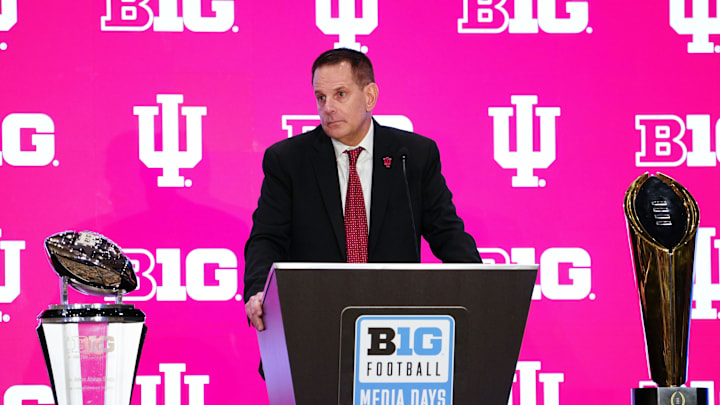Starting in 2026, the Southeastern Conference (SEC) will expand its football league schedule to nine regular-season conference games, ending years of speculation about the future of SEC matchups.
Under the new and improved model, each school will play three permanent rivals and rotate through six additional conference opponents each season. For decades, the SEC has played eight league games, but growing television revenue and playoff expansion reignited talks of a nine-game slate.
🚨 @SEC to implement nine-game conference football schedule beginning in 2026, reinforcing the SEC’s position as the nation’s leader in competitive excellence and fan excitement.
— Southeastern Conference (@SEC) August 21, 2025
🔗 https://t.co/pMhRTuZGu0#SECFB x #ItJustMeansMore pic.twitter.com/NqzseBDd4E
Adding a ninth SEC game underscores our universities’ commitment to delivering the most competitive football schedule in the nation,” said SEC Commissioner Greg Sankey. “This format protects rivalries, increases competitive balance, and paired with our requirement to play an additional Power opponent, ensures SEC teams are well prepared to compete and succeed in the College Football Playoff.”
Under the new format:
- The SEC will continue with a single-standings, non-divisional structure;
- Each school will play three annual opponents focused on maintaining many traditional rivalries;
- Each team’s remaining six games will rotate among the remaining conference schools; and
- Each team will face every other SEC program at least once every two years and every opponent home and away in four years.
The SEC has been playing eight conference games since 1992, when the league expanded from 10 teams to 12. Teams will now play three permanent opponents and six rotating opponents. The SEC will also keep its mandate that schools play at least one out of conference game against someone from the ACC, Big 10, Big 12, or Notre Dame, so that’s 10 P4 opponents every single year for every single SEC school beginning next season.
During Big Ten media days, Indiana Hoosiers head football coach Curt Cignetti responded to a question about Indiana's scheduling philosophy by taking a few jabs at the same SEC teams who criticized Indiana's playoff inclusion last season.
"Here's the bottom line: we picked up an extra home game, and we play nine conference games," Cignetti said. "The two best conferences in college football, any football guy that's objective will tell you, are the Big Ten and the SEC. Twelve of the 16 SEC teams play three G5 or an FCS team. Twelve of those teams play 36 games, 29 G5 games and seven FCS games, and one less conference game [than Big Ten teams].
""So, we figured we would just adopt SEC scheduling philosophy. Some people don't like it. I'm more focused in on those nine conference games.""Curt Cignetti
Here is some reactions from around the nation: Curt Cignetti vs the SEC nation
Brett McMurphy, CFB Insider for On3Sports
So much for Curt Cignetti's "SEC scheduling philosophy." In 2026, SEC teams required to schedule at least 1 non-league power conference opponent in addition to playing 9 SEC games
— Brett McMurphy (@Brett_McMurphy) August 21, 2025
Sam Beard of FoxSportsKnox in Knoxville, Tennessee
Curt Cignetti shaking in his boots pic.twitter.com/LnT8Kdxbic
— Sam Beard (@_beard11) August 21, 2025
Managing Editor at Inside Arkansas
SEC will play 10 power conference games (9 league + 1 Big Ten, Big 12, ACC, Notre Dame) per year.
— Curtis Wilkerson (@CurtWilkerson_) August 21, 2025
Curt Cignetti is in shambles
Cubs On Deck Podcast Host, Greg Huss
Curt Cignetti and Indiana football single-handedly took down and embarrassed SEC football. What world are we living in? https://t.co/Aj7MghG0S3
— Greg Huss (@OutOfTheVines) August 21, 2025
Always Talkin' Ball Podcast Host, Lance and Tyler
I really can’t believe that Curt Cignetti was the man that broke the SEC. https://t.co/tRVLfOVK3e
— Always Talkin’ Ball Podcast (@AlwaysTalkBall) August 21, 2025
Indiana’s season opener kicks off on Aug. 30 against Old Dominion and they also take on Kennesaw State and Indiana State in their non-conference matchups, before getting into the nine-game Big Ten schedule.
